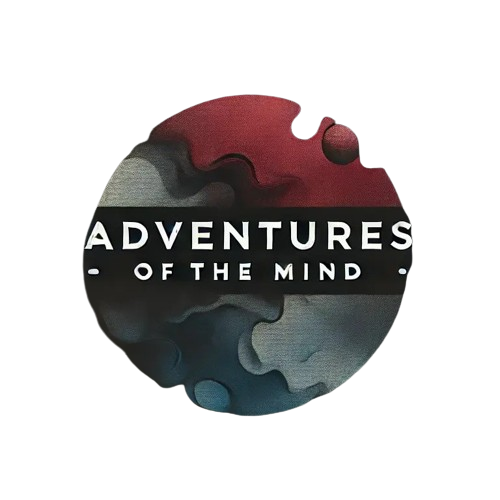Rethinking a Successful Life
Published by Ben Worrall 11th February 2025

We like to think of success as a tangible milestone we can reach through hard work and determination. Not only does the pursuit of success motivate many of our major decisions, but it also provides a sense of societal structure. The social world is constructed around the duality between success and failure, and the consequences of landing on the right side of this split seem very real.
However, the truth is that the modern ideal of a successful life is itself a construction.
The success myth
The modern person, especially in the West but all over the world, is indoctrinated from early childhood with the idea that being successful is essentially the purpose of life. Do well in school, work hard, stay within the guidelines of your culture, and you’ll reach that beautiful but ambiguous pinnacle known as success.
It’s this deep-seated need to arrive at the promised land that drives everything we do. It gives us a sense of direction and purpose. It’s the perceived finish line. The magnetic pull of success has become such a deep motivation because we’ve been taught it’s a real destination that will bring us infinite happiness and make our lives finally make sense.
Unlike other animals, which are content with just being, humans require a sense of meaning. This meaning, once found in community and religion, has largely been replaced by the pursuit of success, in whatever form that takes.
The seductive pull of success is firmly rooted in our psychological makeup. We assume that finding it will finally make us whole or loveable. It will erase our past pains or fundamentally change us, ending our otherwise tragic story on a high note. In the end, we’ll be able to look back and say with pride that we were someone of value and that we lived a worthwhile life.
But is any of this true?
Most of us assume it is, and we can see these assumptions playing out everywhere: in the way our education system is structured, in the underlying narratives presented by the media, in daily conversations with friends and family, and even in the way we use language. The idea that success is the goal is rarely even questioned. It would seem strange not to be chasing success in one form or another.
“Of course, I’m pursuing a successful life. What else would I be doing?”
Most of us are so focused on getting a taste of this ever-elusive success that we never stop to question why we’re so hell-bent on going after it in the first place.
I just want to be happy
At the end of the day, we want to be successful because we think it’s going to bring us happiness. This belief assumes that happiness is found through individual pursuit. Whether you want a successful career, a successful relationship, a successful family, a successful bank balance, or a successful body of work — all of these are based on building, achieving, or maintaining something. The happiness you expect is tied to achieving a desired image of yourself as successful.
In reality, this ‘completion of the game’ never brings lasting happiness. The belief that it will is an illusion. You’re setting yourself up for disappointment. If you fail, society deems you a failure — and because you’ve internalized this belief, you see yourself as one too. If you succeed, you may soon realize that this entire narrative you’ve spent your life following didn’t bring the happiness you thought it would. Life goes on, and once the novelty of success wears off, you are left in a meaningless void. The question then arises: if the success I’ve been chasing my entire life didn’t make me happy, then what will?
In other words, succeed or fail, the pursuit of success always fails because the underlying assumptions are flawed.
Effects on society
If the pursuit of success leaves individuals disillusioned, its impact on society is even more destructive. The success myth leads to a world driven by ego. Ego-driven societies influence individuals to become ego-driven too, and the cycle continues.
In real-world terms, this manifests as an obsession with winning at all costs — through wealth, power, status, material possessions, luxury, experiences, and so on.
An ego-driven world pressures individuals to equate success with status and material gain. It convinces them that accumulating these things is the pinnacle of human achievement and that anyone can achieve them with enough smarts and determination. Of course, this is not how the real world works, and when individuals face the realities of life, they feel lost.
Because a success-based society convinces us that we should strive for our rightful and achievable success, it inadvertently contributes to many of the toxic elements we see every day: crime, overwork, unhealthy lifestyles, lack of care for others, the wealth gap, mental health issues, and judgment.
It’s because we believe in the myth that these become major issues. In less individualistic cultures, there’s more of a tone of acceptance rather than a false notion that each of us needs to be reaching for an imaginary top where all our problems will dissolve.
A healthy person doesn’t seek validation through success. He embraces life as it comes. When success does come, he doesn’t see it as ‘success’ — just something positive that happened. And since there is no striving, there is also no failure.
Finding Balance
The pursuit of success can be practical. It often goes hand in hand with living a materially comfortable life and for those struggling to make ends meet, success is an understandable goal.
Despite its flaws, the success myth has also played a role in economic development. One of the reasons we have seen so much economic growth over the last century is due to the prevalence of the success myth as the major global narrative.
I believe, however, that we’re at the point where blindly pursuing success at all costs is doing more damage than it is helping us build a better world that works for everyone. Most people in the West don’t view success as a way of living a comfortable life. They view it as a way to rise above and beyond the norm.
What’s required is a reframing of the success myth in a way that allows us to clearly see both its benefits and its limits, so we can balance our lives accordingly.
But what does this balanced view of success look like?
I’d say the biggest change needed is for individuals to stop buying into the mass delusion of success and instead take the time to figure out what a successful life looks like to them.
The key phrase here is take the time.
Figuring out who you are and what you truly want takes decades of growth and reflection. If it’s done right, the individual finds real success as they are pursuing the values that are most meaningful to them while clearly understanding there is no end goal that’s going to fulfil them permanently.
The problem is that because the cultural success narratives are so strong, people feel pressured into appearing successful as soon as possible and therefore dedicate all their time to going after this mirage rather than cultivating an understanding of themselves. There are also strong economic pressures that further limit the individual’s room for critical thinking.
Ironically, a society that provided its people with the time and space to develop themselves, their skills, and their own path of success would likely have far more creative breakthroughs and produce more economic value in the long run. Human beings are far more capable when they can figure out the role that suits them best and slowly develop mastery of a passion, allowing them to see their pursuits not as an end destination but as a lifelong process of contribution.
Beyond the myth
A while ago, I came to realise no matter what type of success I achieve in life, it will never provide the long-term satisfaction I used to assume it would. This realisation, for anybody, is both positive and negative. On the one hand, it breaks the illusion and moves them closer toward a sober view of life. On the other hand, it leaves them directionless and often results in a crisis or depression. This is what happened to me.
I still have trouble with this. The problem is that when you accept that happiness won’t be found in external conditions, an emptiness arises, the same emptiness that would be discovered if your ideals of success did come true. It can be a lonely experience when the vast majority of people are still bought into the myth.
The question I often consider is: what other source of meaning is there if the success route is a non-starter?
I think to answer this question we can turn to the stoic philosopher Seneca and his thoughts on the shortness of life. I paraphrase his writing:
A mistake is to hurry the day along as if there was a future. The person who can live out each day as if it were his last, will have no reservations towards his death when it arrives. A person with a mind that is untroubled and tranquil has the power to look back and appreciate all of their life. However, the mind of those who are engrossed, cannot turn and look behind. Therefore their life vanishes in a blink of an eye.
Maybe then, our focus should be less on any specific achievement or attainment in the external world, and more on cultivating our inner world. On finding a truly infinite source of satisfaction and meaning through developing a mind that’s untroubled and tranquil. And thereby appreciating existence for its own sake. Perhaps that is the only real success.
Ben Worrall





